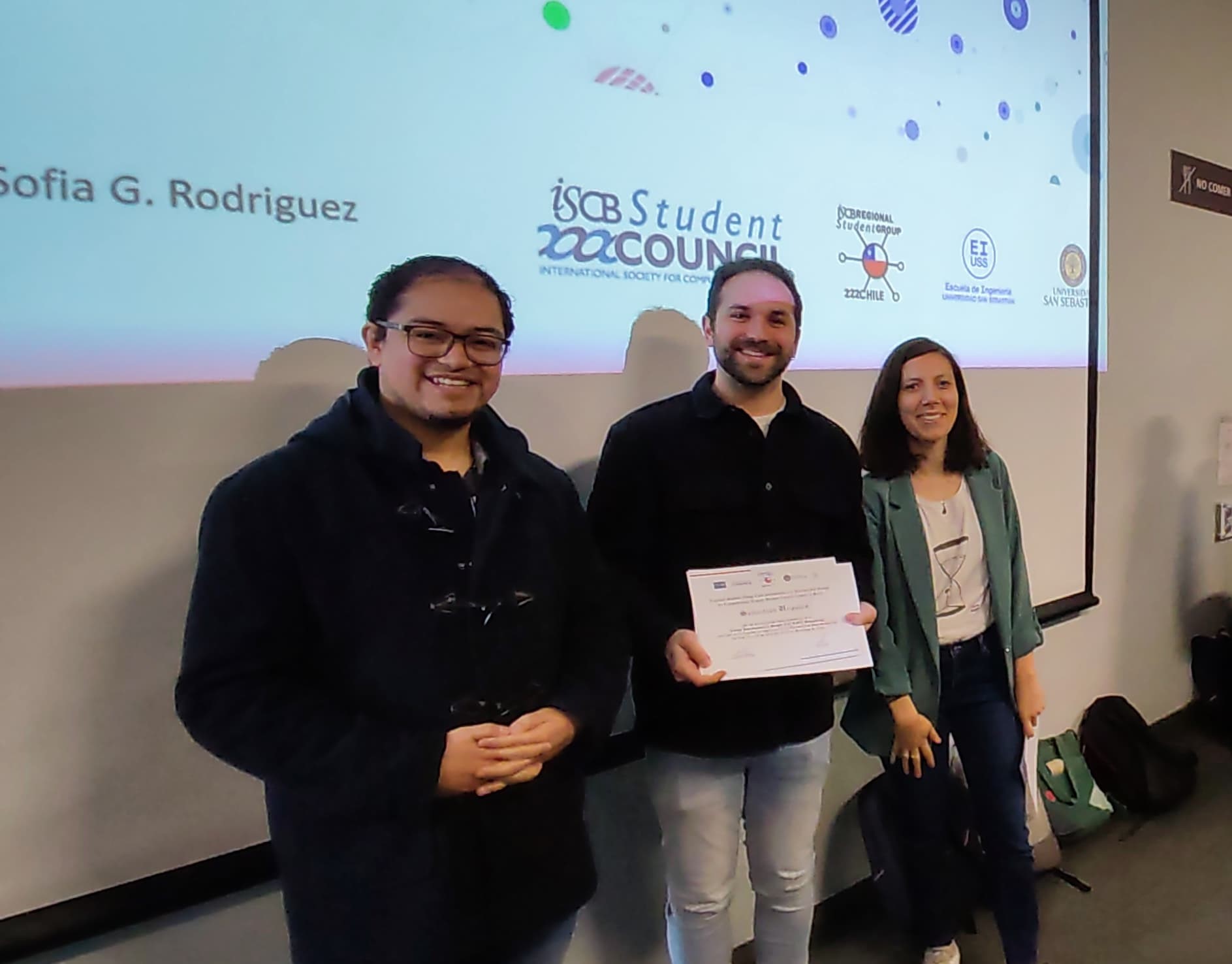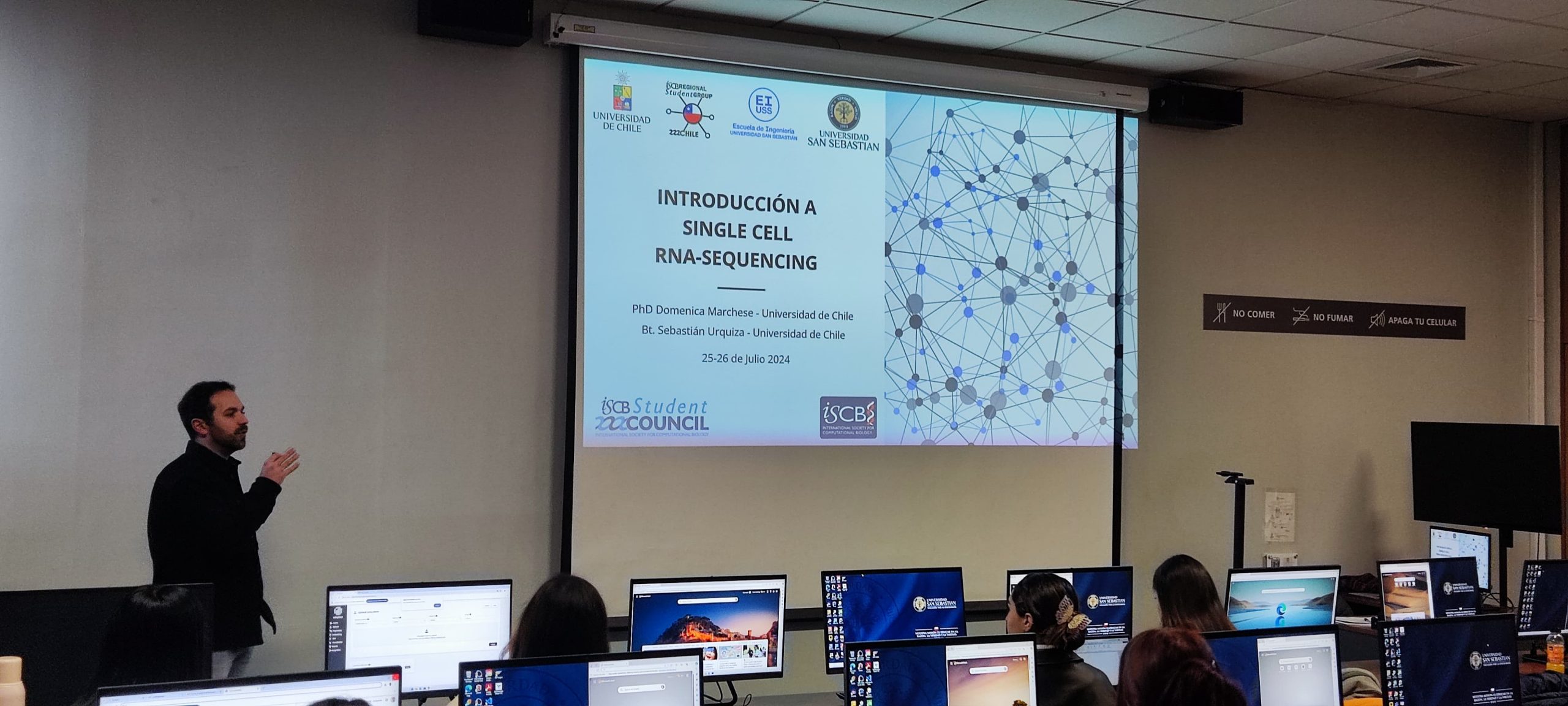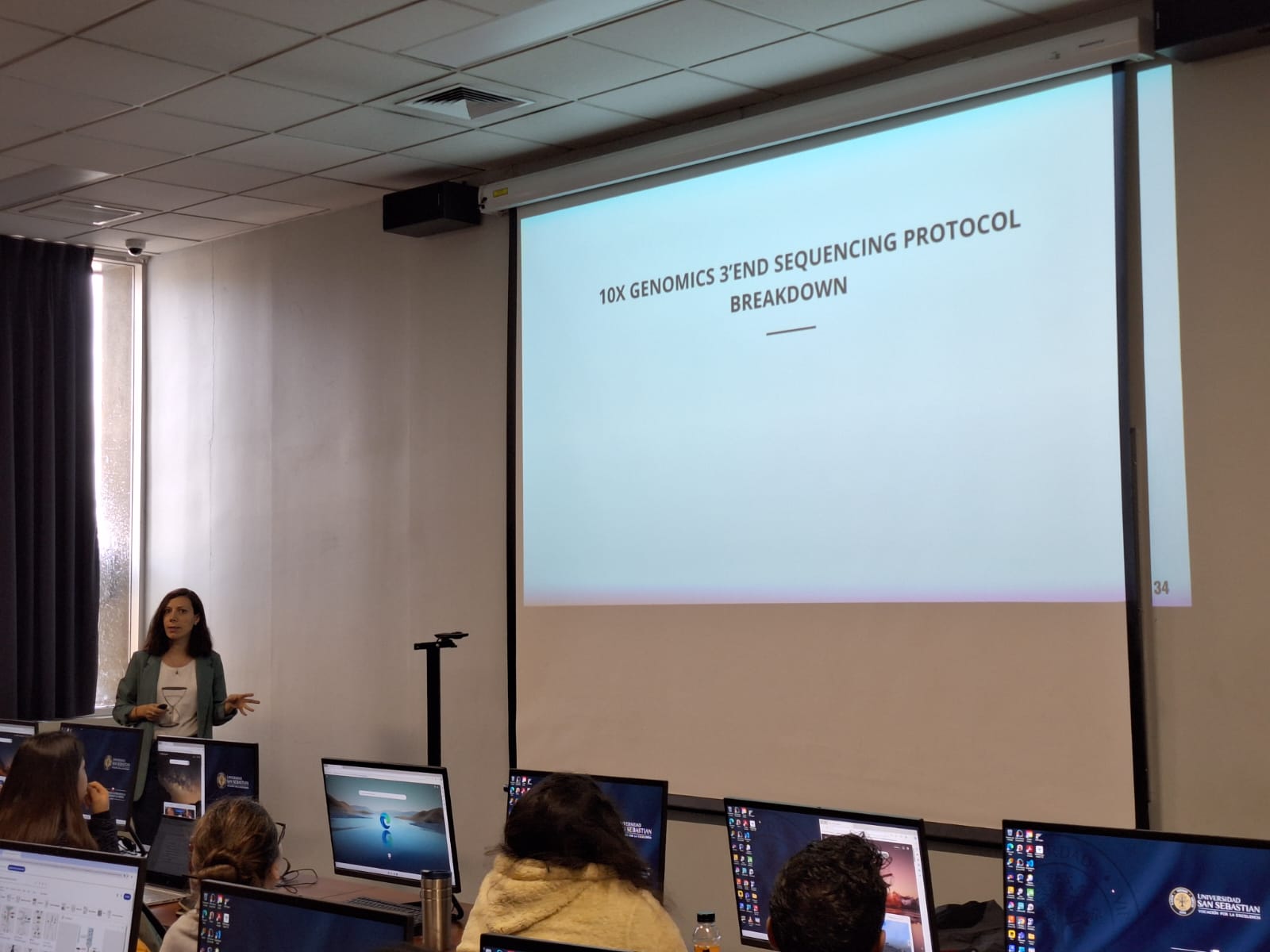Interviews
25 students from various universities, participated in the course "Introduction to Single Cell RNA Sequencing" offered by two researchers from the Center
- August 8, 2024
- Publicado por: ACCDIS
- Category: News
 The event was held on July 25 and 26, 2024, at the Faculty of Engineering of the Universidad San Sebastián in collaboration with the International Society for Computational Biology Student Council (ISCB-SC). The call, brought together 25 students from various universities nationwide, achieving a wide participation of women.
The event was held on July 25 and 26, 2024, at the Faculty of Engineering of the Universidad San Sebastián in collaboration with the International Society for Computational Biology Student Council (ISCB-SC). The call, brought together 25 students from various universities nationwide, achieving a wide participation of women.
The course, entitled "Introduction to Single Cell RNA-sequencing" was divided into two days. On the one hand, Individual cell sequencing technology explained (single cell RNA-sequencing) Its experimental design, Advantages and disadvantages of this technology. And in the second half, A bioinformatics practice was carried out, in which test data were analyzed to identify different biological samples.
The activity was directed by Sebastián Urquiza Zurich, PhD student in Biochemistry at the Faculty of Chemical and Pharmaceutical Sciences of the University of Chile, thesis student at the Advanced Center for Chronic Diseases ACCDiS and collaborator of the Regional Student Council Chile team (GSR-Chile). And also by Domenica Marchese, coordinator of the Advanced Genomics Unit (UGA) of the University of Chile and researcher at the. Both scientists work in the line of research dedicated to integrative genomics and systems biology of post-transcriptional events in heart failure, directed by Dr. Vinicius Maracajá, principal investigator of the center.
"With the advancement of single-cell sequencing technologies, It is essential to learn not only the laboratory techniques and the pros/cons of this technology, but also how to analyze enormous amounts of data to answer the different biological questions that we as researchers ask ourselves," explained Sebastián Urquiza Zurich, adding that having been part of the organization of the course and being an instructor of it, It has helped him improve different skills as a scientist and researcher, and to expand their network of contacts for future collaborations and events of this type. "Being part of the RSG-Chile has motivated me to continue promoting computational biology and bioinformatics at the national level and as a team to take on new challenges for the future."
In this same line, Domenica Marchese highlighted the interest of the participating students, who stressed that these technologies could represent an important advance in their own research projects. "It was a very good opportunity to share knowledge, connect with local researchers and publicize the emerging reality of the Advanced Genomics Unit that we are building at the Faculty of Chemical and Pharmaceutical Sciences of the University of Chile. I am very grateful to the members of the GSR for having involved me in this beautiful initiative," he concluded.

